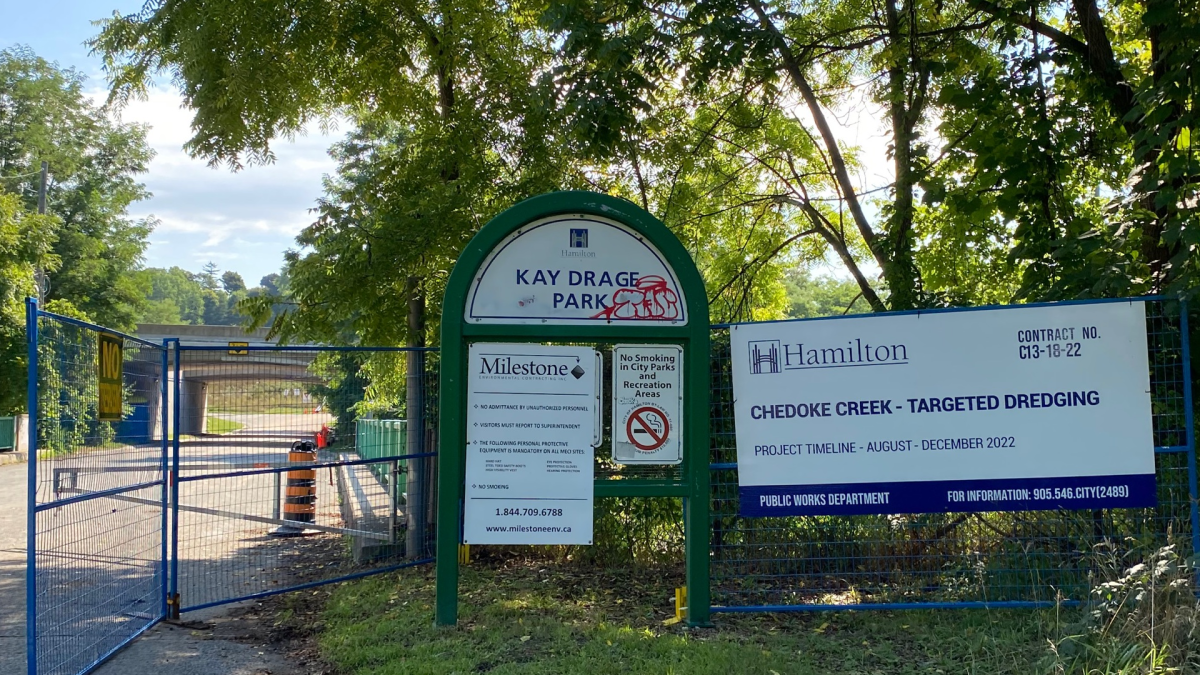Hamilton has thrown in the towel as it relates to meeting the provincial environment ministry’s order to complete targeted dredging of Chedoke Creek by the end of this year.

The city’s general manager of public works and director of water confirmed, during a media call on Tuesday morning, that a two-part request was submitted last week to Ontario’s Ministry of the Environment, Conservation and Parks (MECP).
“Despite our best efforts, we are unable to achieve the MECP’s deadline of December 31, 2022”, said general manager of public works Carlyle Khan.
The city is seeking a one-year extension of the deadline to complete the targeted dredging of more than 10,000 cubic metres of contaminated sediment until December 31, 2023.
It is also asking that orders be issued to the Haudenosaunee Development Institute (HDI), under Ontario’s Environmental Protection Act, requiring that members of the Indigenous group allow the city and its contractors access to the work area.

Get breaking National news
Nick Winters, Hamilton’s director of water, added there have been nearly “40 incidents of disruption” at the work site since mid-August.
“Demanding access to areas that are under active construction, launching watercraft in the area of the dredging machine, and there was also an incident where the dredging machine was broken into last week and equipment and tools were stolen”, said Winters.
A spokesman for the HDI said its representatives have been exercising their treaty rights, amidst a dispute with the city over consultation and their need to consent and provide approval for the remediation project.
Over 24-billion litres of sewage and untreated wastewater leaked into Chedoke Creek from a combined sewer overflow (CSO) tank, between 2014 and 2018. The MECP issued clean-up orders to the city in December 2020.
HDI lawyer Aaron Detler has criticized the remediation plan, noting that dredging will only remove a fraction of the contamination. He argued that the city is “trying to cover up what it would cost to actually clean up the spill.”
If the province agrees to the deadline extension, and to provide “safe and unimpeded access”, Winters said the city may choose not to start dredging until next summer, noting that in-water work is not allowed between mid-March and mid-July to protect fish spawning season.
“We are not sure at this point in time, if we are best served by moving forward this fall/winter and getting as much of the work done as we can and then returning to the project when we’re able in 2023”, stressed Winters, “or if it’s going to be less disruptive to demobilize the project at this point in time, and start fresh when we’re able to do so.”
Winters was not prepared to estimate the cost of the project delays, pointing to a number of “complicating factors.”
“Those unknowns include costs related to permit extensions or resubmission for permit applications, potentially mobilizing and then demobilizing a contractor.”








Comments